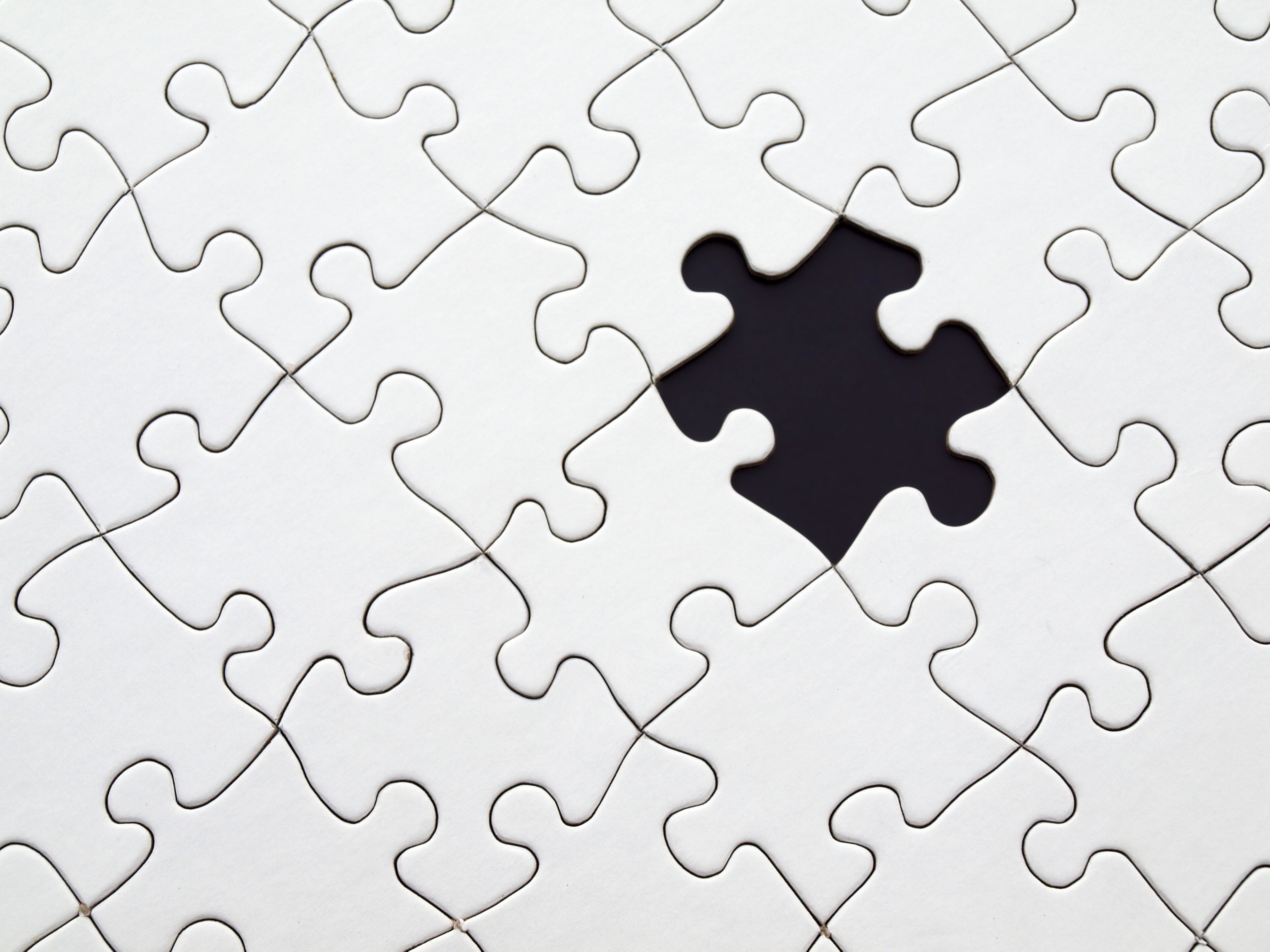What if you were able to come out of this time of social distancing and economic crisis with a stronger and healthier financial life? What if you looked at this as an opportunity to take a little bit of your extra time each day to work on your finances?
Estate Planning
Day 14 Of 30 Days Of Stay-At-Home Personal Finance Wins: Update Your Beneficiaries
What if you were able to come out of this time of social distancing and economic crisis with a stronger and healthier financial life? What if you looked at this as an opportunity to take a little bit of your extra time each day to work on your finances?
The One Document Everyone Over The Age of 18 Should Have
Last week, I attended a continuing education seminar titled Elder Law Boot Camp for Financial Advisors that was hosted by an estate planning attorney. I know. Sounds fun, right? But it was actually much better than I thought it would be and it had some great takeaways.
One of The Biggest Holes In Your Financial Life
4 minute read
I’ve said it before, and I’ll say it again: having estate planning documents in place isn’t only for rich people or elderly people.
Estate planning documents are those decrees that state what you want to happen to your money, your stuff, and your children when you pass away and who will be responsible for your financial and medical decisions if you were to become incapacitated. Examples of common documents that many people have heard of are last wills, living wills, trusts, powers of attorney, etc.
Why Do I Need Them?
Not having estate planning documents in place, or having poorly executed documents in place, can lead to a huge mess upon your passing and can cause a lot of trouble and heartache for your heirs and those who are responsible for managing your estate. However, it remains one of the biggest holes in most people’s financial lives. This is typically because dying or becoming disabled isn’t something that we want to spend much time thinking about. Also, most people don’t take the time to think about the consequences of not having properly executed estate planning documents in place, or they aren’t even sure what the consequences could be.
Make It Clear
Even with estate planning documents in place things can get very messy when the documents provide little direction, which leads to autonomy for the heirs. It sounds great and everyone wants to believe that their loved ones are responsible and will act maturely, but often the heirs have different ideas of what should happen with the estate. I’m sure that many people have experienced a situation like this that can, unfortunately, lead to many problems and can sometimes lead to family members no longer speaking.
Just having estate planning documents in place often isn’t enough; they need to be written with the proper language to ensure that your wishes are carried out. Additionally, while probably uncomfortable for most, sitting down with those who will inherit your estate and explaining what you would like to happen is a great idea. It not only provides you with the opportunity to express your wishes, but also may reveal any points of conflict that may come up in the future. This could allow you to reevaluate what your documents currently state and make changes as appropriate.
I hope this shows the importance of really thinking through what should happen to your money and your possessions when you pass away. If not, find someone you know who has gone through a situation such as this and I’m sure they’ll make you think differently.
Some Things To Think About
Your last will is where you name the beneficiaries of your estate. If something were to happen to you today, what would happen to your money and your stuff? Is that something that you want to decide or are you fine with leaving that up to the state to decide?
But what if you didn’t die? What if you became disabled and you weren’t able to make decisions for yourself? Would you want life-sustaining support if you were otherwise likely to pass away without it? What would happen to your kids? Your pets? What about all of your online accounts?
Who would pay your bills and take care of your financials? Who would you want to make the tough health care decisions on your behalf? Would you feel comfortable with that person making your financial decisions as well as your health care decisions? Have you considered if the person who you want to make health care decisions on your behalf is one of your heirs? This could create a moral and ethical challenge for them.
Possibly more importantly, do you want to decide who will be responsible for making those decisions for you or do you want the state to have the authority to appoint those people on your behalf?
Once you have your estate planning documents in place, then you can make sure that all of your financial accounts have the proper beneficiaries (who gets your money when you die) listed on them aligned with what you have declared in your will. These could be beneficiairies on things such as your retirement account, other investment accounts, and life insurance policies.
Most people don’t think it’s wise for their twelve-year-old to have $500,000 of life insurance proceeds at their disposal without some stipulations around when and how the money can be used. Without proper estate planning documents in place however, this is exactly the case. However, you can set nearly any provision that you’d like in your will as to when your heirs will receive the money and what they can do with it.
Mutual Benefits
Having estate planning documents in place that are up-to-date and that have the proper language in them can provide peace of mind as well as make things much easier on your loved ones if and when something happens to you. This isn’t only a practice that you should complete to benefit yourself and your wishes, but something that will benefit those who you love as well.
*I am not an attorney and you should not take this as legal advice. This is simply education about one of the common weaknesses in many people’s financial lives and some of the problems that it could potentially lead to.*
Digital Asset Planning
3 minute read
This is where digital asset planning comes into play. I’m not going to pretend to be an expert on this by any means as that should be left up to those in the legal profession, but I can share some things to think about as well as some of the information that I’ve gathered through continuing education webinars over the past couple of months.
What Are Digital Assets?
- Online accounts (financial, social media, shopping, etc.)
- Usernames and passwords
- Access to devices which require passwords (computer, phone, etc.)
- Websites that you own (especially for small business owners)
Why should we care about who has control of our digital assets once we pass?
Ensuring that your digital assets are properly cared for can save your loved ones a lot of trouble. Closing inactive accounts of someone who has passed can help protect that person from identity theft. Really, you’re protecting yourself. If one of your family member’s identity was stolen upon their passing and you were the executor to their estate guess who gets to deal with any accounts that are opened in their name and any unauthorized charges made to those accounts. You.
Think of all of your old accounts that you ignore because you simply don’t want to take the time to delete them. Maybe you never use PayPal but you have $0.15 sitting in it for some reason. Your heirs could inherit a giant headache if someone were able to hack into that account upon your passing and it still had updated payment information on file.
Methods of Assigning a “Digital Executor”
A lot of people think that estate planning documents (wills, living wills/medical directives, powers of attorney, health care powers of attorney, trusts, etc.) are only for the rich or elderly, but they’re not. Properly executed estate planning documents can be beneficial to everyone. With social media, online accounts, and electronic devices which require passwords to be unlocked prevalent in today’s world, it’s important to make sure that you have a plan for what would happen to your digital assets if something were to happen to you.
Some websites such as Facebook and Google allow you to set someone to become the administrator of your account if you were to pass. If you’ve had your estate planning documents executed within the past year or two, then a good estate planning attorney will have had you name someone as your “digital executor” in your last will. If your will doesn’t designate a digital executor, then it may be something that you want to consider to protect your family.
It’s important to keep in mind that any legacy administrators that you’ve designated on Facebook, Google, or any other accounts must match those who are listed in your estate planning documents.
Take Inventory & Share Your Information With Someone You Trust
Take an inventory of your digital assets which should include all of your online accounts as well as your usernames and passwords to those accounts. A password protected Excel sheet could do the trick or a password manager like LastPass could help you. There are also services that can help you keep track of all of your digital assets.
The trick is that someone else has to know the login information to your Excel workbook or LastPass account as well so that they can manage, and close, your digital assets to help protect from identity theft.
Protect Your Loved Ones
Properly planning for what will happen to your digital assets upon your passing can save your heirs a lot of pain and heartache. It’s something that we should all consider as digital assets become more prevalent in our lives.





